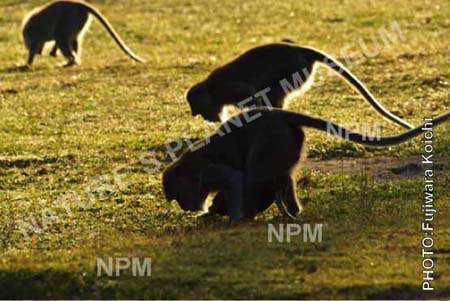
|
Morning
sun arrived at the forest.
It
is time to drink water in the morning. The monkeys here don't like to drink dirty
water at all. Early in the morning, the monkeys drink the dew drops on the
grass which are the cleanest and the most delicious for them.
�X�ɒ�������Ă����B
���͐������ގ��Ԃł��B�����̃T�������́A�ɂ����ĉ��������������Č��ɂ��Ȃ��B�������A���ɂ��������ʂ̘I���A�����ꂢ�ł��������̂��B
|
|
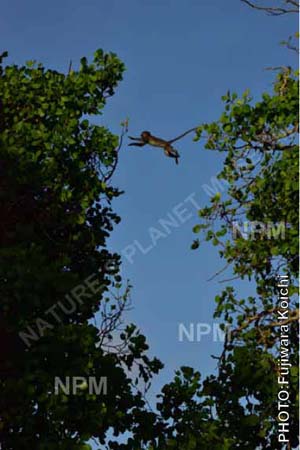
|
A monkey is climbing a giant tree, and then he jumped from tree to tree!
�傫�Ȗ����邷��Ƃ̂ڂ�A����փW�����v�I
|
|
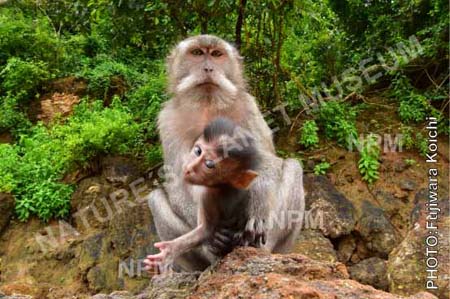
|
A baby monkey with one month old that is embraced by mother.
���ꂳ��ɕ�����Ă���A���܂��1�J���قǂ̐Ԃ����U���B
|
|
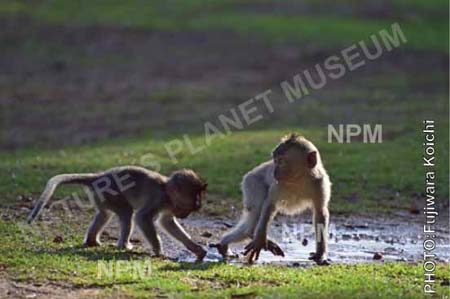
|
Baby
monkeys are stunned by insects, try to bite the grass, put anything that
appears in front of them in the mouth and play.
�q�ǂ������͒��ɂ��ǂ낢����A�����������Ă݂���A�ڂ̑O�ɂ����ꂽ���̂����ł����ɓ���ėV�ԁB
|
|
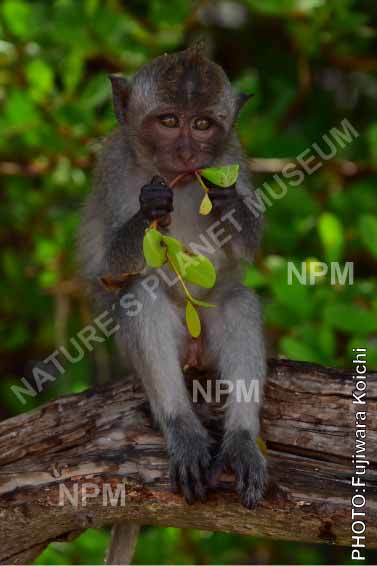
|
The juice of this leaf is delicious.
���̗t���ς̏`�͂���������B
|
|
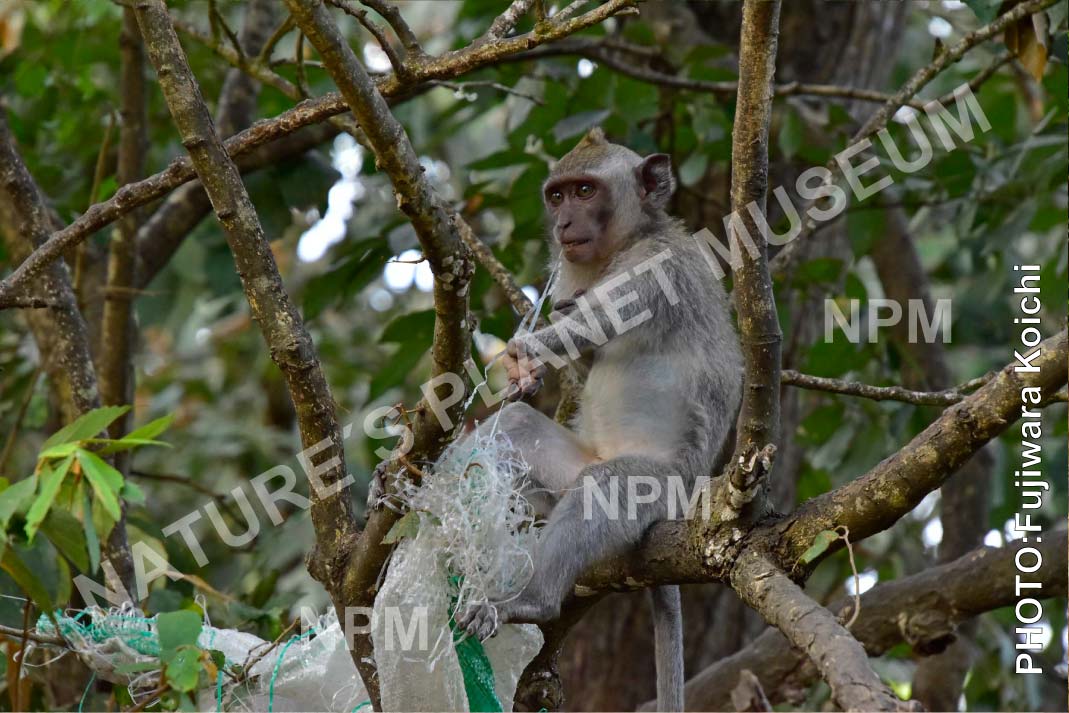
|
A monkey started eating something mysterious. It was a plastic string made
by humans.
1���̃T�����ӂ����Ȃ��̂�H�ׂ͂��߂��B����́A�l�Ԃ��������v���X�`�b�N�̂Ђ����B
|
|
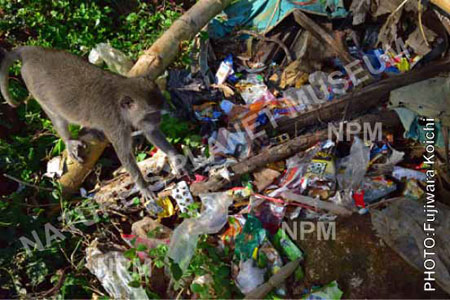 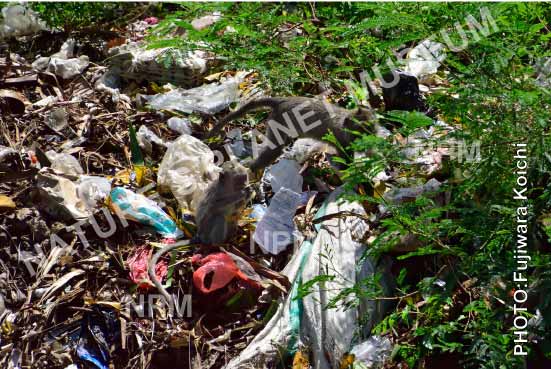
|
A ��onkey came in with a strong smell coming out of the waste dumping site. Some monkeys have begun to eat plastic garbage.
���݂���o�鋭���ɂ����ɂ��āA�T������������Ă����B���ɂ́A�v���X�`�b�N���݂�H�ׂ͂��߂��T�����B
|
|
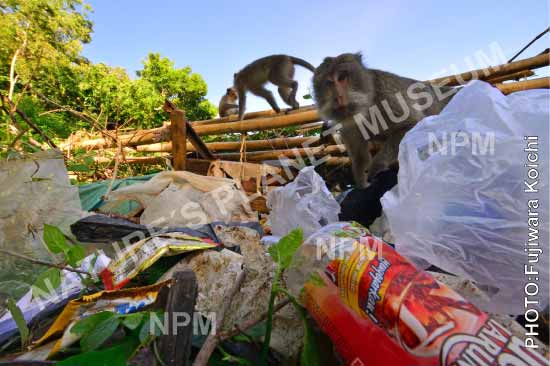 |
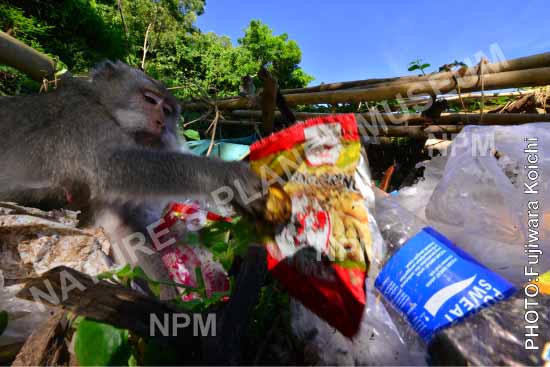 |
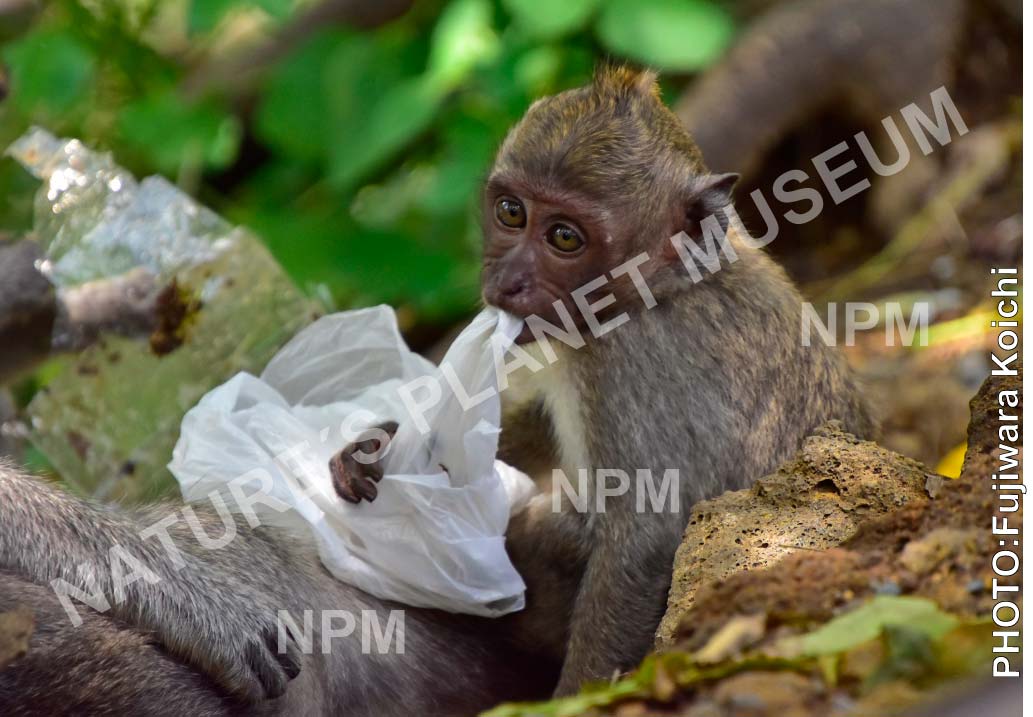 |
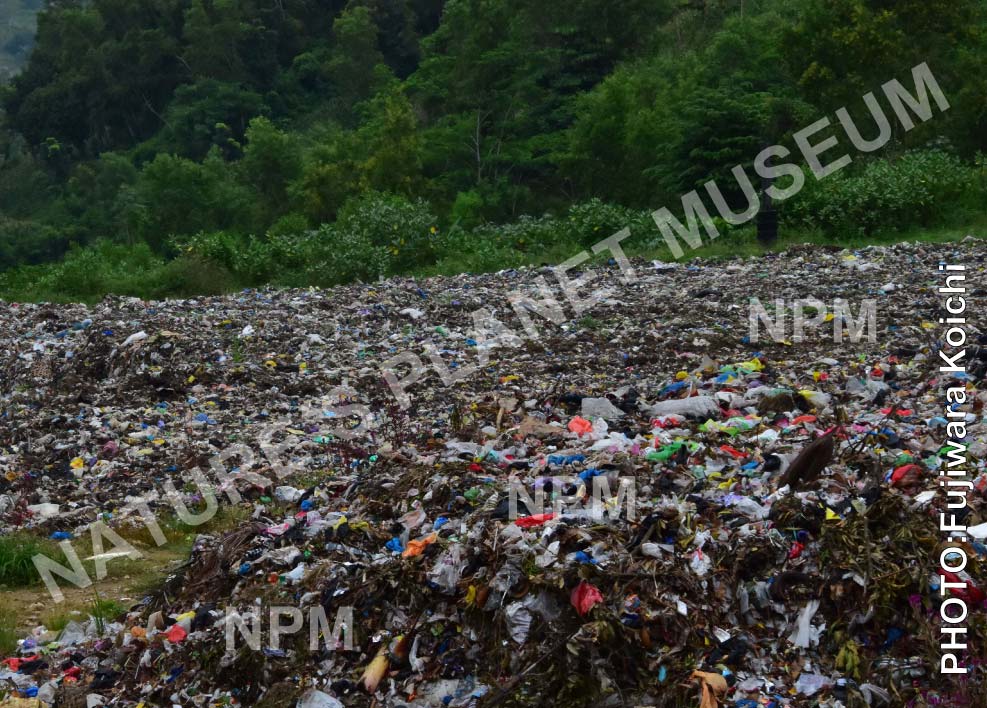 |
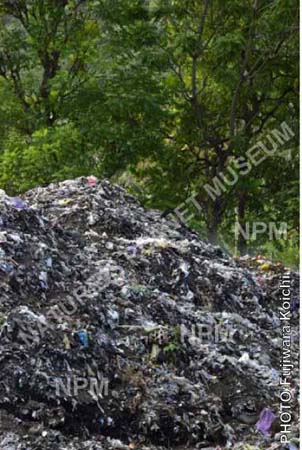 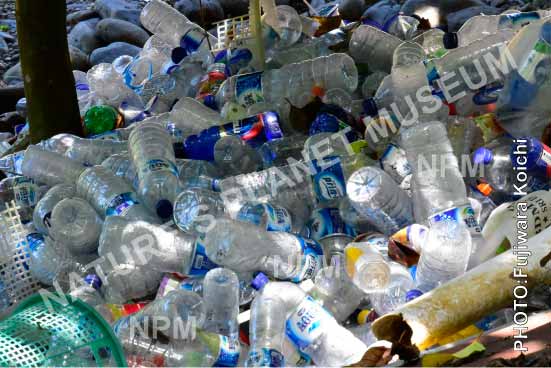
|
In
the forest, a lot of plastic garbage were illegally dumped which building up
plastic mountains. There are countless plastic bottles, bags, cups, cords, and
so on.
�X�̒��ɁA��ʂ̃v���X�`�b�N���݂���@�Ɏ̂Ă��A�v���X�`�b�N�̎R��z���グ�Ă����B��������Ȃ��قǂ̃y�b�g�{�g����W�܁A�J�b�v�A�Ђ��ȂǁA�ǂ���v���X�`�b�N���肾�B |
|
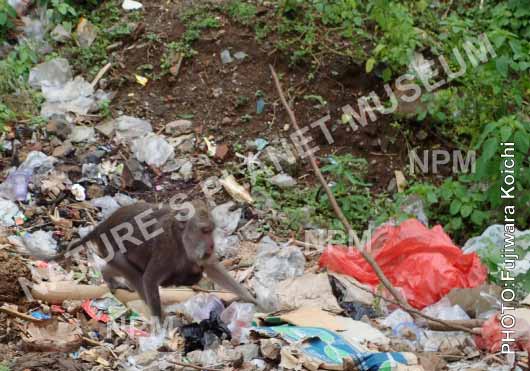
|
The
mother and baby monkey were curious about the plastic mountain and nervously
approach the pile of plastic.
���ꂳ��ƐԂ������A�v���X�`�b�N�̎R���C�ɂȂ��āA�����邨����߂Â��Ă݂��B |
|
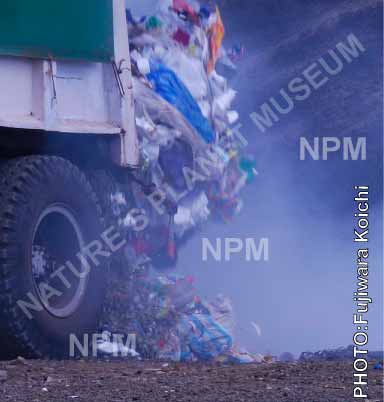
|
Suddenly,
a truck full of plastic waste arrived.
"Beep beep beeep screech!�h
The truck, making loud scary sounds is throwing plastic waste.
With a loud rumble, plastic
waste from the back of the truck started falling out.
�ˑR�A�l�Ԃ̉^�]����g���b�N������Ă����B
�u�ǂǂǂǂǁc�c�v
�n�����̂悤�ȑ傫�ȉ��ƂƂ��ɁA�g���b�N�̉ב䂩�炽������̂��݂��̂Ă��Ă���B |
|
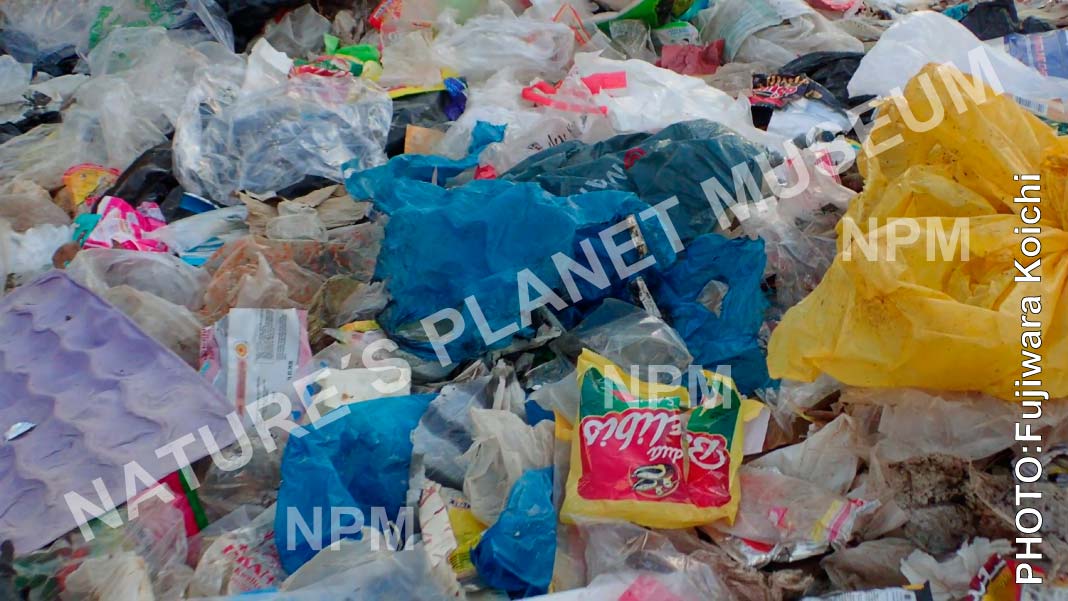 |
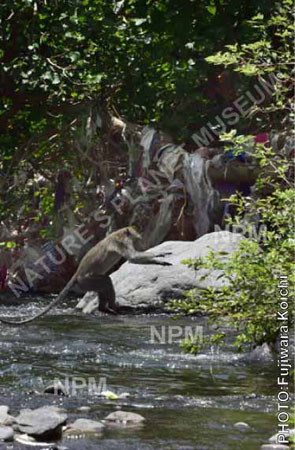
|
Like
the forest, there are a lot of plastic wastes on the riverbank. Wastes dumped
in the forest are blown away by the wind and washed away by the rain.
�X�Ɠ����悤�ɁA��݂ɂ���������̃v���X�`�b�N���݂��B�X�Ɏ̂Ă�ꂽ���݂��A���ɔ���ꂽ��A�J�ɗ����ꂽ�肵�Ă��܂������̂��B
|
|
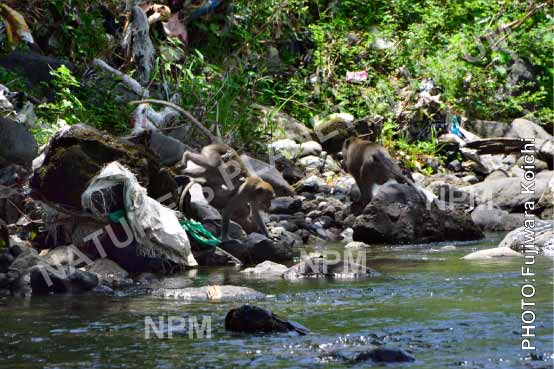 |
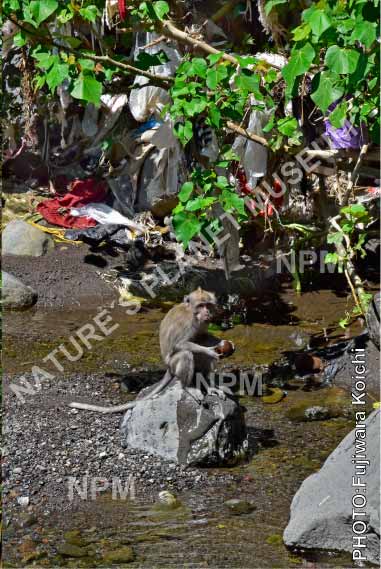 |
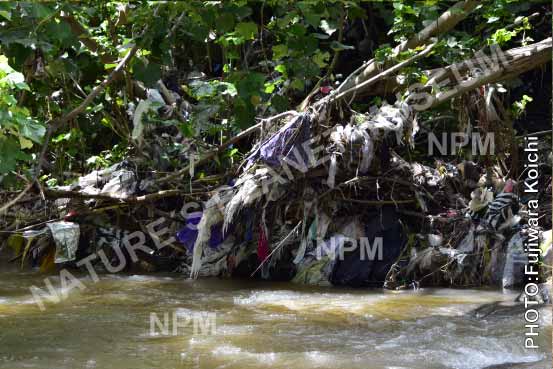 |
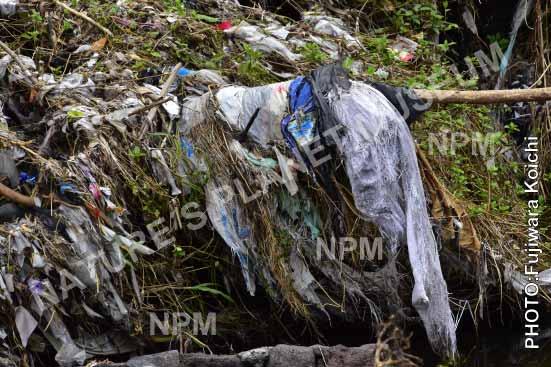 |
 |
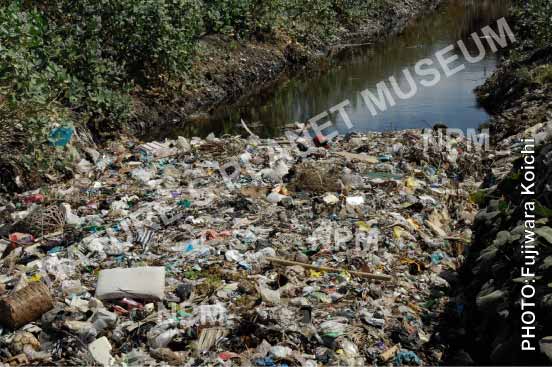
|
The sea is connected to the river flowing through the forest.
Like
the forest, there are a lot of plastic wastes on the riverbank.
�C�́A�X�𗬂���ɂȂ����Ă���B�X�Ɠ����悤�ɁA��݂ɂ���������̃v���X�`�b�N���݂����܂��Ă����B
|
|
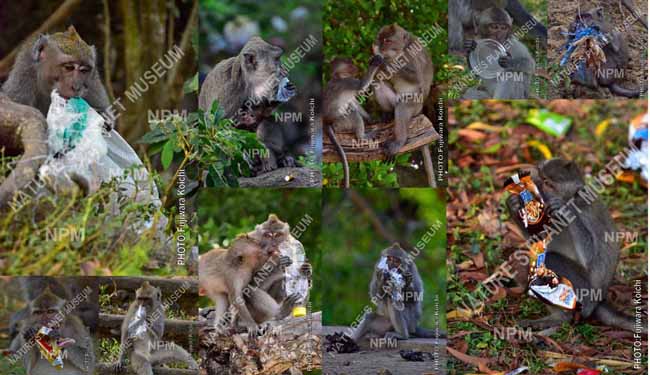
|
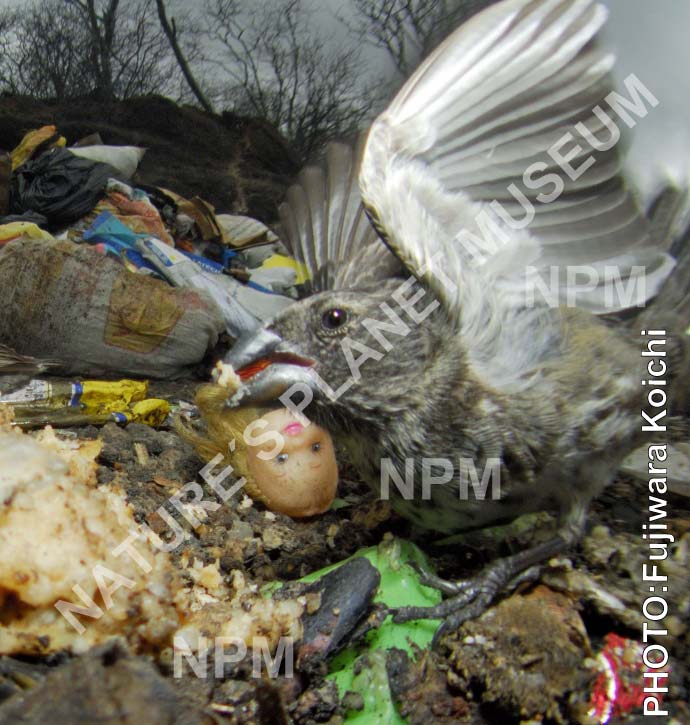
|
Mountains of unsorted garbage are dumped in the forests. A Darwin finch
comes to feed on leftovers thrown out by humans.A huge amount of plastic
waste is being dumped together.
��ăK���p�S�X�����ɂ���A���ʂ��ꂸ�ɁA�����X�̒��Ɏ̂Ă��Ă���S�~�̎R�B�l�Ԃ����Ă��c�т�H�ׂɂ���Ă����_�[�E�B���t�B���`�B�c��ȃv���X�`�b�N�S�~���ꏏ�Ɏ̂Ă��Ă���B
|
|
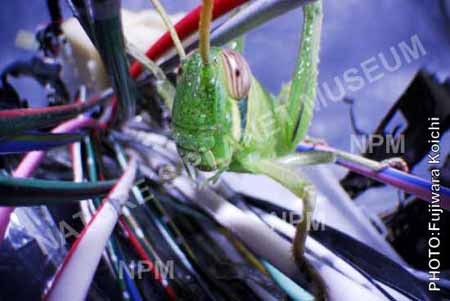
|
Insects
gather in plastic dumps all over the world and are looking for food and living
space instead of their original environment.
���E���ŁA�v���X�`�b�N�̂��ݎ̂ď�ɍ������W�܂�A�{���̐�����ƈႤ���݂��ƐH�ׂ��̂�T���Ă���B
|
|
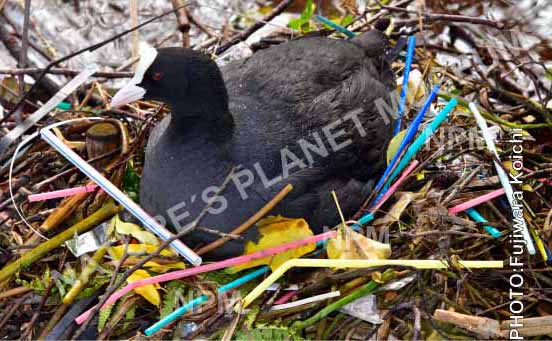
|
Wild birds making their nest with plastic straws
�X�g���[�ő���肷��쒹
|
|
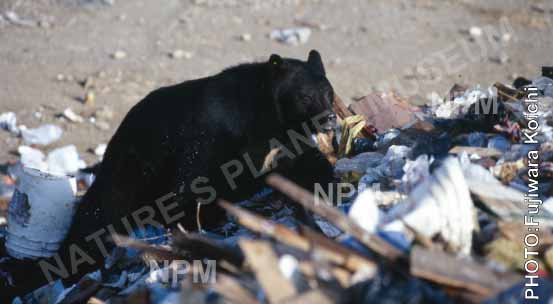
|
American black bear living in the Canadian Arctic also love dumping places.
Some of the things that humans have thrown away are sugar that is not naturally
sweetened and those that have been artificially seasoned, attracting bears.
�J�i�_�k�ɒn��ɕ�炷�A�����J�O�}���A���ݎ̂ďꂪ��D�����B�l�Ԃ��̂Ă����̂ɂ́A���R�ɂȂ��Â��̍�����A�l�H�̖��t�������ꂽ���̂�����A�N�}���Ђ����Ă���B
|
|
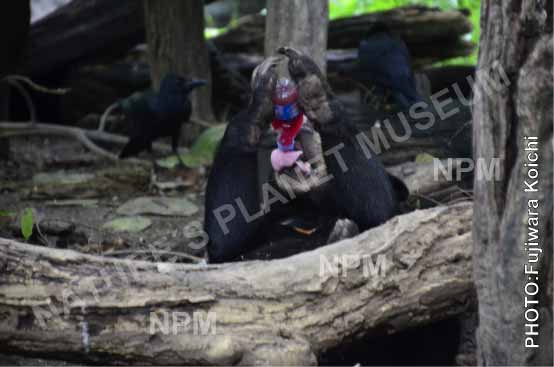
A sun bear inhabiting Southeast Asia. Here too, wild sun bears are biting
plastic bottles.
����A�W�A�ɐ�������}���[�O�}�B�����ł��쐶�̃}���[�O�}���v���X�`�b�N�{�g�����������Ă���B |
|
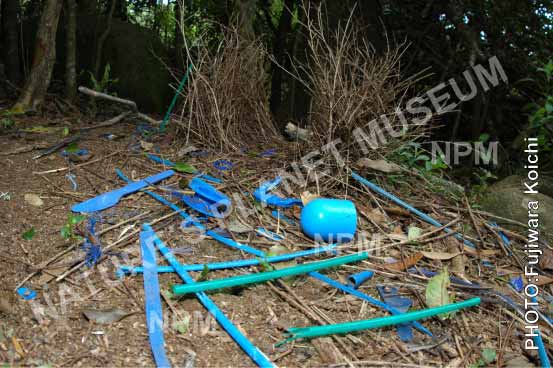
|
Males of the Satin bowerbird have the habit of decorating the surrounding
area with blue ones, making a toya combining twigs and the like. It was
originally decorated with petals, bird feathers, and plant fruits, but
now it is full of plastic.
�A�I�A�Y�}���h���̃I�X�́A���}�Ȃǂ�g�ݍ��킹�����������A���͂�����̂ŏ���K��������B�{���͉Ԃт�Ⓓ�̉H�A�A���̎��Ȃǂŏ����Ă������A���ł̓v���X�`�b�N���炯���B
|
|
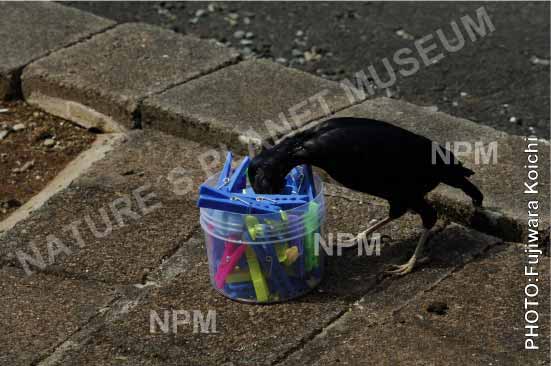
|
Satin bowerbird fly to the human housing area and pick up blue straws and
clothespins.
�l�Ԃ̏Z��n�܂Ŕ��ł����A�u���[�̃X�g���[�������݂Ȃǂ����h���Ă���B
|
|
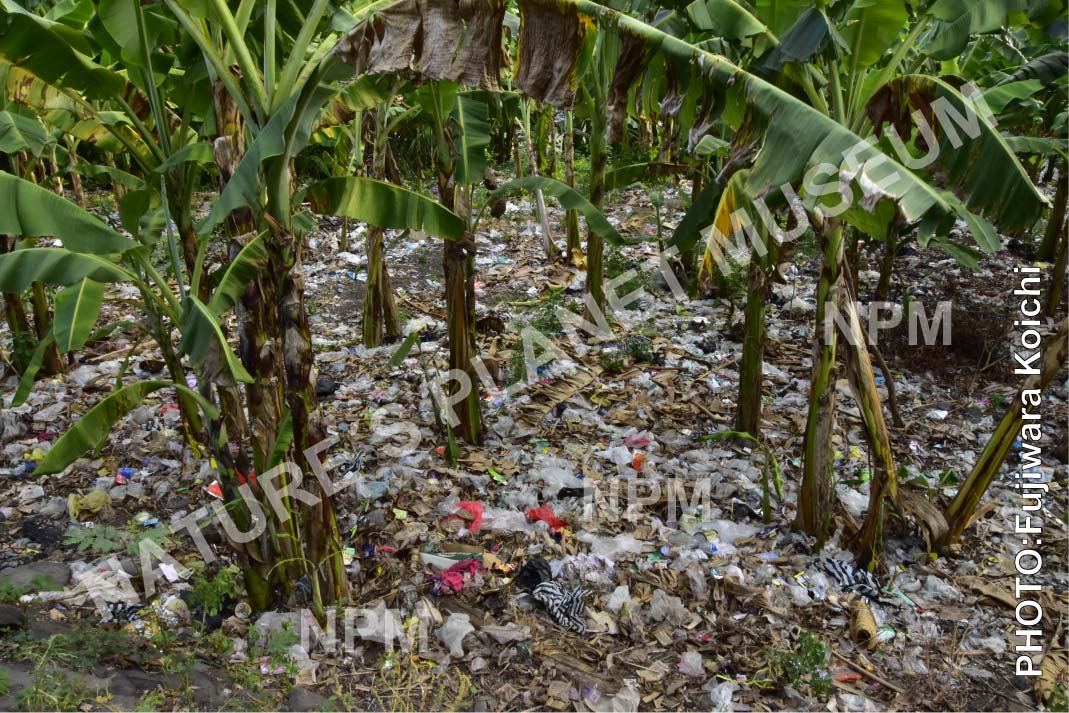
A pile of plastic waste dumped illegally on banana plantation. These bananas
grown here are tranfered to the local markets.
�o�i�i�v�����e�[�V�����Ɉ�@�Ɏ̂Ă�ꂽ�v���X�`�b�N���݂̎R�B�����ň�Ă�ꂽ�o�i�i���s��ɏo�ׂ���Ă���B |
|
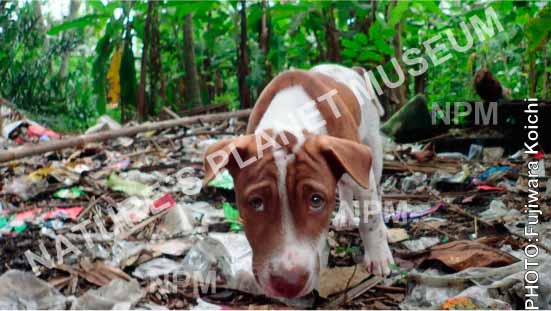
Stray dogs roaming on a banana plantations where are full of plastic waste.
�v���X�`�b�N���݂ł��ӂꂽ�o�i�i�v�����e�[�V�������˂���ɂ��Ă���A��nj��B |
|
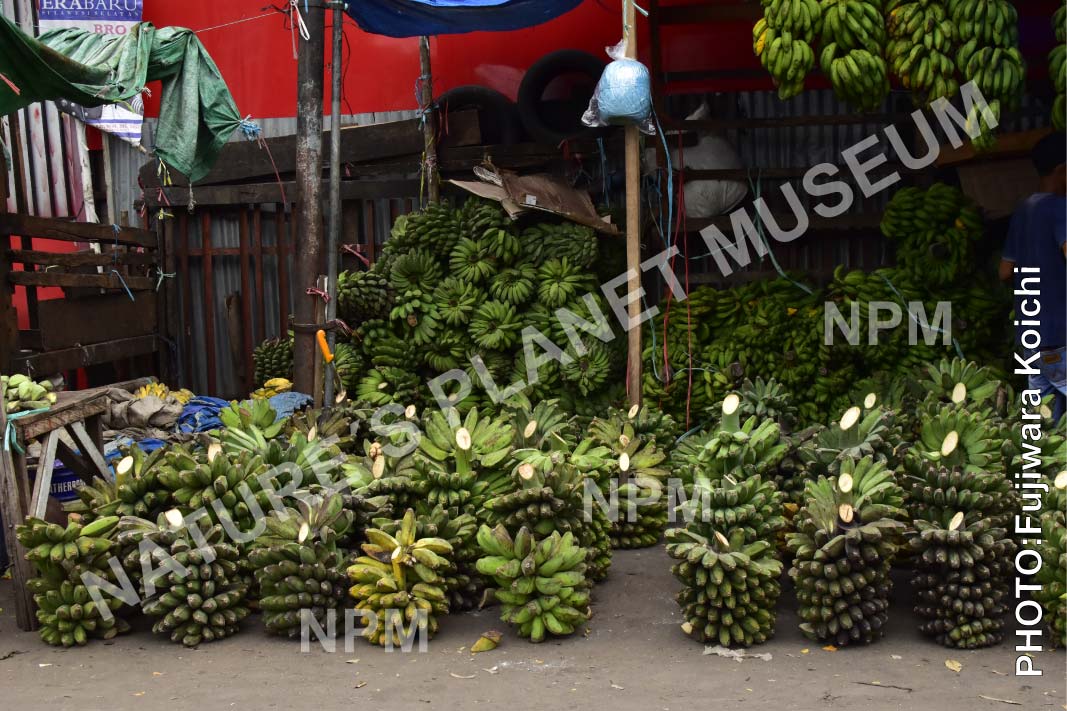 |
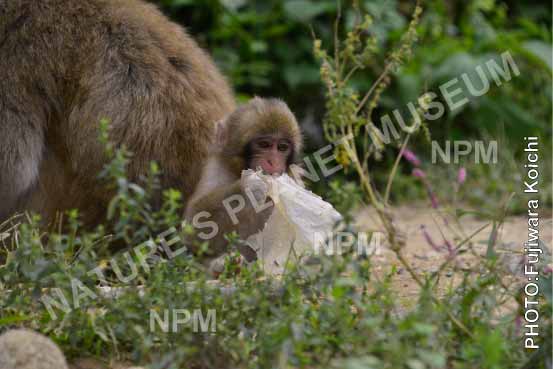
Even in Japan, I discovered that Japanese monkeys were eating plastic bags.
���{�ł��A�j�z���U�����v���X�`�b�N�܂�H�ׂĂ���p���B |
|
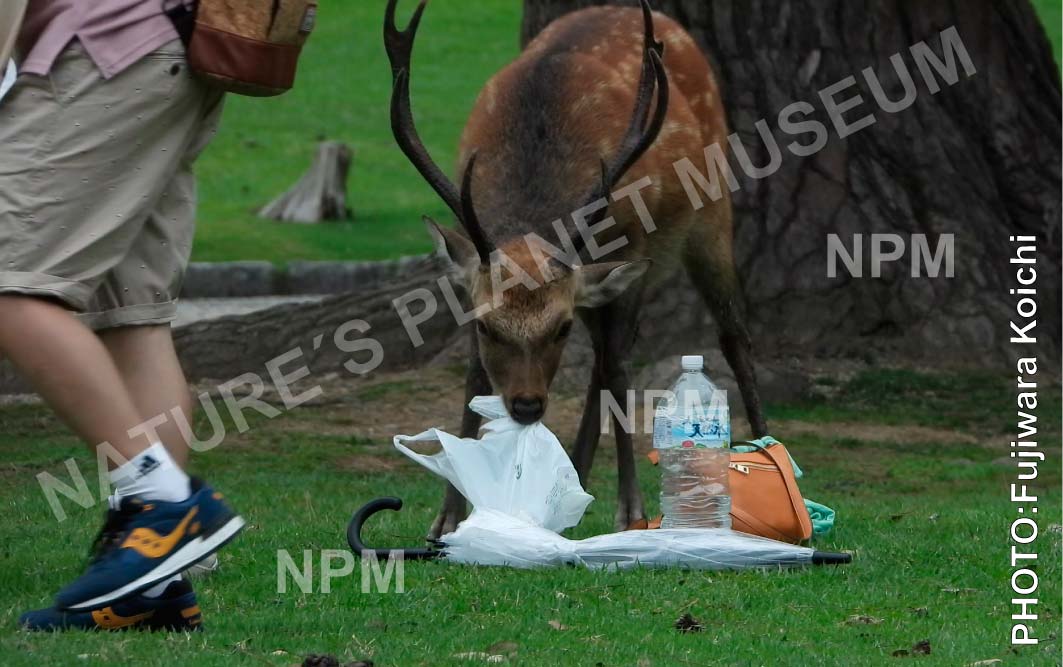
In Nara Park, there is an accident where a deer dies due to eating plastic waste.
�ޗnj����ł́A�V�J���v���X�`�b�N���݂�H�ׂ����Ƃ������Ŏ���ł��܂����̂��N���Ă���B |
|
|
Photo Gallery�@�ʐ^�M�������[
OCEAN�@�C
Please click this photo to start
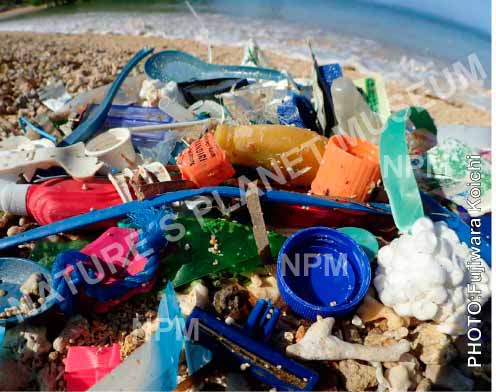
�M�������[���ς�ɂ͎ʐ^���N���b�N |
|
Video�@����
Please
click this photo to start a footage video.
|
Wild birds making their nest with plastic straw��
�X�g���[�ő���肷��쒹
�\�v���X�`�b�N�̏o���ɂ����
��������ς��Ă��܂����쐶�@�\ |
Wild elephants eat plastic garbage illegally dumped by people
�l�Ԃ��̂Ă��v���X�`�b�N���݂�H�ׂ�쐶�]�E |
Plastic banana plantation
�v���X�`�b�N �o�i�i�E�v�����e�[�V���� |
A male of Satin Bowerbird collect only blue plastic to make a specialized
stick structures, called bowers which attract females.
���X��U�f���邽�߂ɁA���v���X�`�b�N���W�߂ē��������I�X��
�\�v���X�`�b�N�̏o���ɂ����
��������ς��Ă��܂����쐶�A�\ |
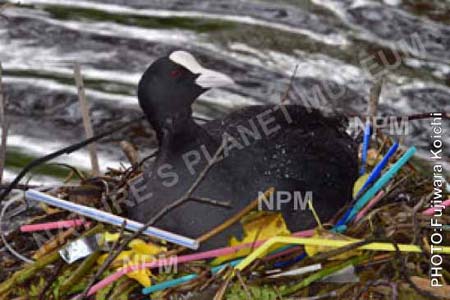 |
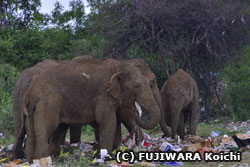 |
 |
 |
|
Endemic wild birds gather at a plastic waste dump site on an Island
���ŗL�̖쒹�������W��
�v���X�`�b�N���ݎ̂ď�
�\�v���X�`�b�N�̏o���ɂ����
��������ς��Ă��܂����쐶�B�\ |
Wild monkeys eat plastic trash
�v���X�`�b�N���݂�H�ׂ�쐶�U�� |
Plastic trash littering beside the road
���[�Ƀ|�C�̂Ă����v���X�`�b�N���� |
|
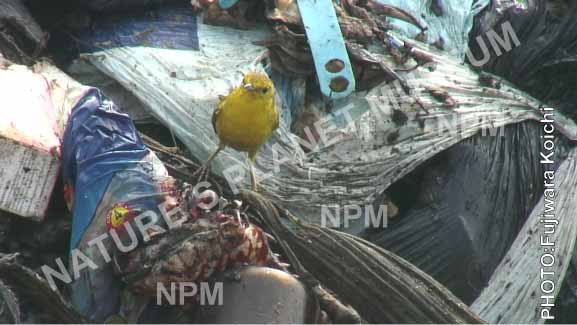 |
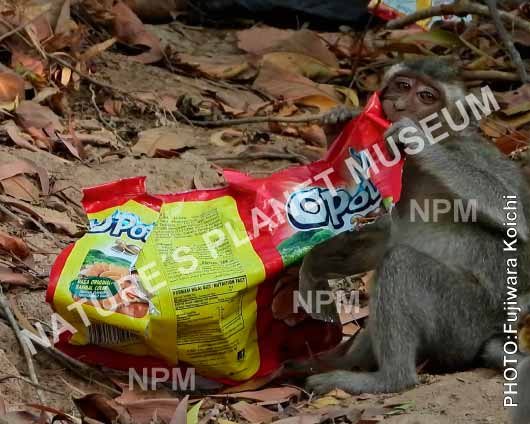 |
 |
|
|
Plastic waste is sinking into the bottom of the sea
�C��ɒ��ރv���X�`�b�N����
|
A Fur Seal with Ghost Net
�I�b�g�Z�C�ƗH��� |
Plastic waste floating in the sea
�\ Every year 8 million tons of plastic waste are abandoned into the sea
of the world.�\
�C��Y���v���X�`�b�N����
�\���N800���g���̃v���X�`�b�N���C�Ɏ̂Ă��Ă���\
|
A plastic forest inhabited by a calappa crab
�J�j�����炷�v���X�`�b�N�̐X |
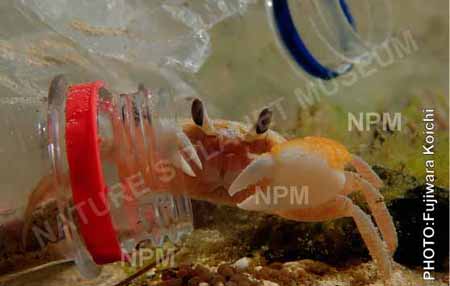 |
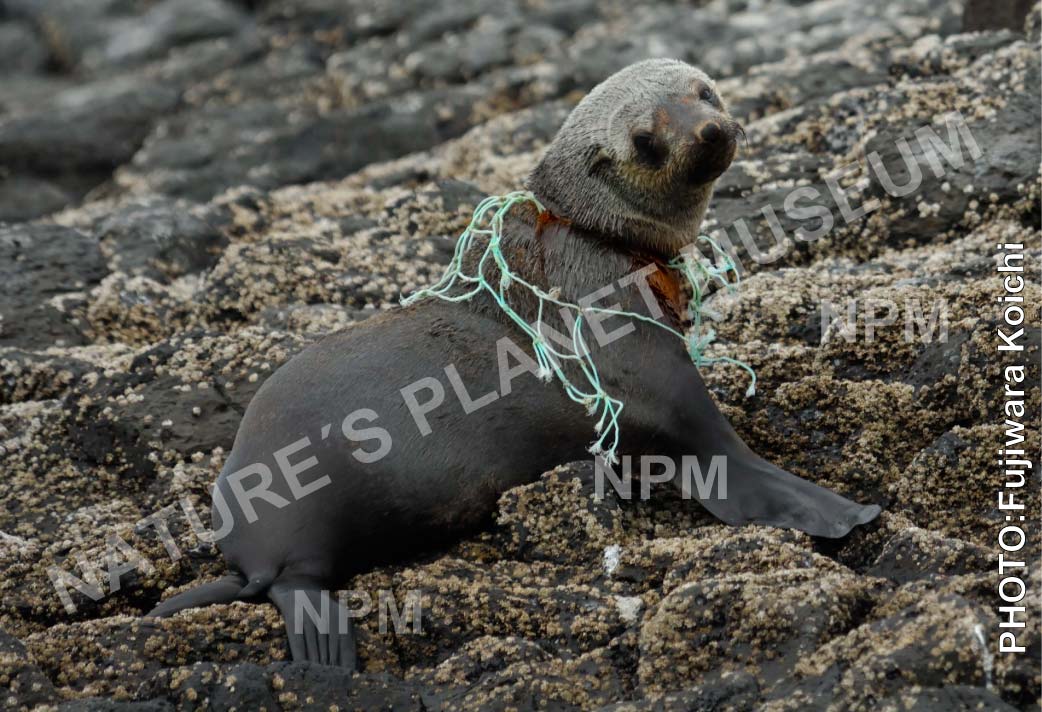 |
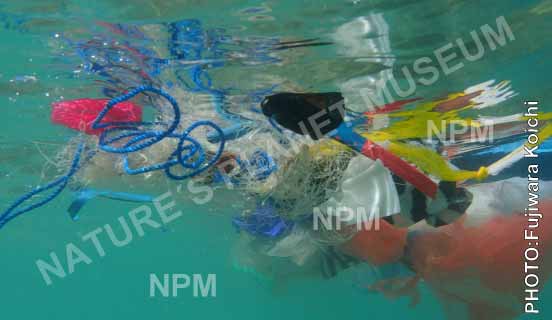 |
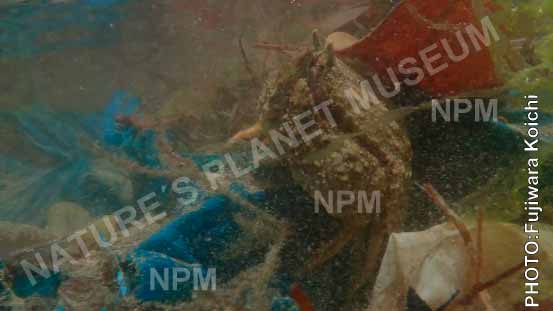 |
|
A marine iguana has swallowed a fishing hook
�ނ�j�����ݍ���ł��܂����E�~�C�O�A�i
|
|
|
|
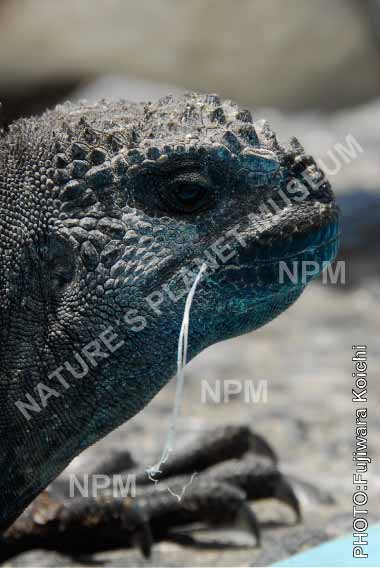 |
|
|
|
|